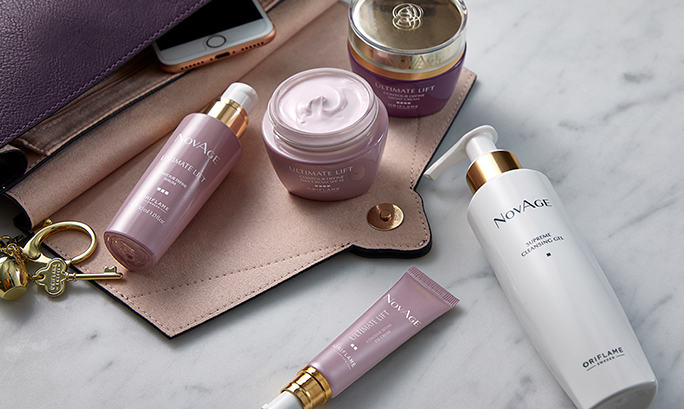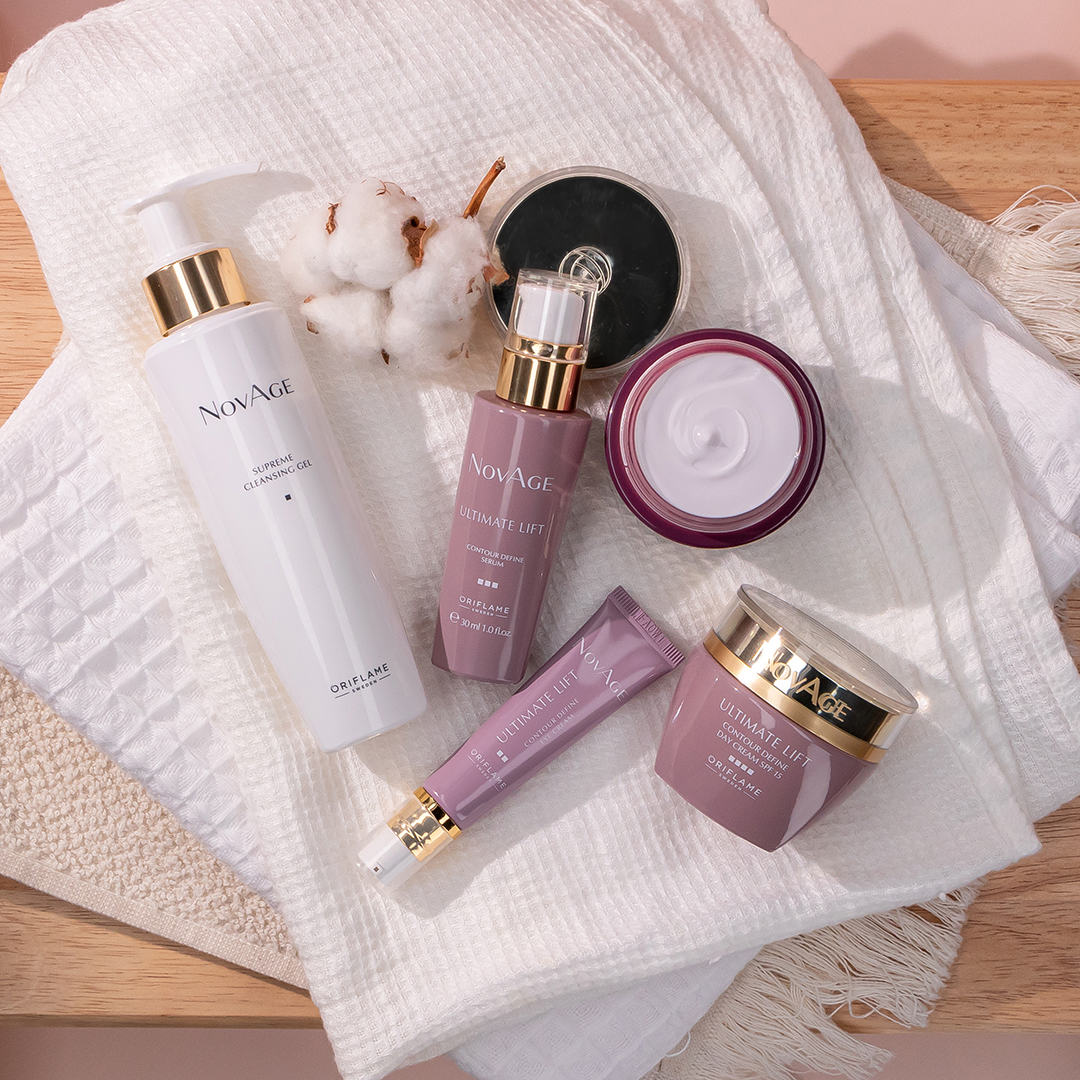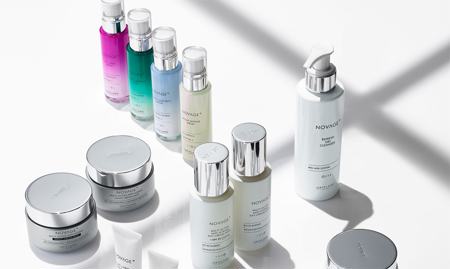First off, what is skin elasticity?
Great question! Skin elasticity refers to the skin’s ability to spring back to its original shape after being stretched or pulled at, similar to a brand-new rubber band that’s been stretched and can quickly bounce back to its original shape. You can test out your skin elasticity by giving your cheeks a pinch – do they snap right back or take a little while to get back to normal? There are two key fiber proteins in the skin responsible for keeping skin firm and elastic: collagen (which contributes to keeping skin supple and firm) and elastin (which gives skin its flexibility). This influential duo can be seen as the “gatekeepers” to youthful looks and are critical when it comes to preserving the skin’s structure.

What happens in the skin when we lose skin elasticity?
As we get older, our skin begins producing less of the collagen and elastic fibers needed to keep skin firm and flexible – and as skin starts to lose its structure, we start to notice changes in the way our skin looks and feels. As elastin production slows, the loss of elastic tissue results in a loss of firmness, which combined with gravity can cause skin sagging, especially around the cheeks, jaws, and eyes. Collagen also plays a role in skin elasticity, as well as epidermal thickness. This means that collagen loss results in skin that is prone to wrinkles, and damage such as bruising, because skin becomes thinner and more fragile. But this isn’t the end of the line! Skin elasticity and premature skin ageing are affected by both internal and external factors. Internal factors, such as our biological age, are hard to impact. But when it comes to external factors, you have the power to influence your skin ageing through lifestyle choices – and it’s never too late to start. Here are a few examples of external factors that impact skin ageing:
Sun exposure and pollution: Prolonged, repeated UV and pollution exposure results in collagen and elastin degradation (hello wrinkles), as well as the formation of skin-cell damaging free radicals. So, don’t skimp on that SPF!
Poor nutrition: Highly processed junk foods are often high in fat and sugar, neither of which are good for our skin or overall health. Processed foods, and foods cooked at high temperatures are a source of advanced glycation end products (appropriately referred to as AGEs for short), which damage collagen and elastin, resulting in that dreaded skin drooping.
Smoking: Another culprit to watch out for when it comes to the premature skin ageing is smoking cigarettes. Smoking can cause damage to the skin that’s similar to pollution, with chemicals from the smoke accessing the skin and contributing to ROS damage, while also impacting hydration. Smoking is also known to disrupt the microvasculature of the skin, which in turn affects the integrity of elastin and collagen. Additionally, the act of smoking will also mechanically stretch the skin, particularly at the lips and cheeks, which contributes to the ageing of the skin.

Is there anything I can do to proactively improve my skin’s elasticity?
Until we develop a time machine, we cannot prevent the process of aging. But fear not! As seen above, age is but one of the many factors that impacts skin elasticity and firmness. Here are some tips to actively help revive your smooth, supple skin:
Hydrate your skin: On the inside and out! As hard as it might seem to achieve, making sure you get the daily recommended amount of H2O (water) can help you sip your way to plumper, more youthful skin. Take the time to moisturize your skin with day and night creams (yes, there is a difference) when you wake up and before you go to sleep – moisturizers prevent oxidative stress caused by dehydration, allowing skin to repair and protect itself.

Hit the hay: We all know about the importance of beauty sleep, and yet many of us still don’t prioritize it in the face of life’s other obligations. But we should! Those 7-9 hours of rest provide our skin with the opportunity to restore itself from the damage caused by daily exposure to stressors.
The right routine: If you’ve started to notice that your face has started to change shape due to loss of skin elasticity, then it’s time to invest in a routine that helps to redefine your facial contours, lifts and firms the skin. Retinoids have long been known to help stimulate the collagen and elastin production, but often with undesirable side effects, such as redness and irritation. The Ultimate Lift skin care routine is developed with Oriflame’s patented AspartoLift technology. It’s just as powerful as retinol at increasing skin firmness – for more defined facial contours, without the side effects.



